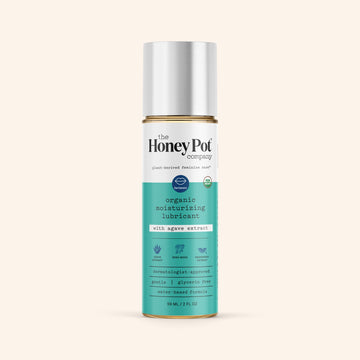We know there’s so much noise around what skincare products to buy, how to maintain your effortless glow and whether natural products are truly going to be your savior. It’s also increasingly harder to understand what products work with your skin type and your hormonal levels. Your skin is clear, glowing, and you’re feeling flawless. Then pimples and blemishes seem to pop up of out of nowhere. What’s to blame for those nasty breakouts during periods? Those pesky internal things referred to more commonly as your hormones. Just like your mood and weight can fluctuate throughout your menstrual cycle the same happens to your complexion. Here's how your skin changes during menstrual cycles:
Your cycle starts with your monthly visit from Aunt-Flo, aka the start of your period. During this time, estrogen and progesterone levels are low, leaving your skin dry and more sensitive and blemish-prone than usual. To aid these changes and help prevent acne during periods, we suggest using calming and moisturizing all-natural products. We love aloe vera, manuka honey, coconut and other plant oils (don’t worry it won’t make you break out- your skin needs oil) and facial mists to soothe. Skincare brands like Knours even specialize in hormone balancing products to help you replenish your skin
Once your period ends (cramps begone!), estrogen levels increase and stabilize. This is good news! Estrogen is responsible for your collagen and hyaluronic acid production, a protein and sugar naturally found in our bodies. This equals healthy and plump skin, as well as a stronger skin barrier (less sensitivity and irritation). These levels will remain high during ovulation Welcome back gorgeous, glowy skin!
After ovulation, progesterone levels start to rise, which can cause excess oil production, breakouts and hormonal acne. This is common throughout the second half of your cycle as you experience other PMS symptoms, and prepare to start your period again. You may also be craving the things you love to hate such as sugar and carbs and feeling bloated. But a healthy diet is important to reduce inflammation which causes breakouts and puffy skin. Incorporate healthy fats like avocados, nuts, seeds, and salmon into your diet and drink lots of water to help with PMS and “period skin.”
The link between your skin and hormones is one more way your period affects your overall health, and one more reason to track your period. Tracking helps you monitor the changes you see in your skin and body throughout each month. If you do notice that you have relentless hormonal acne or overly oily skin, you may want to discuss going on a birth control pill with both estrogen and progesterone with your gynecologist to treat these issues.
For more information on syncing your skincare with your menstrual cycle, check out these articles from Well + Good and Women’s Health.






